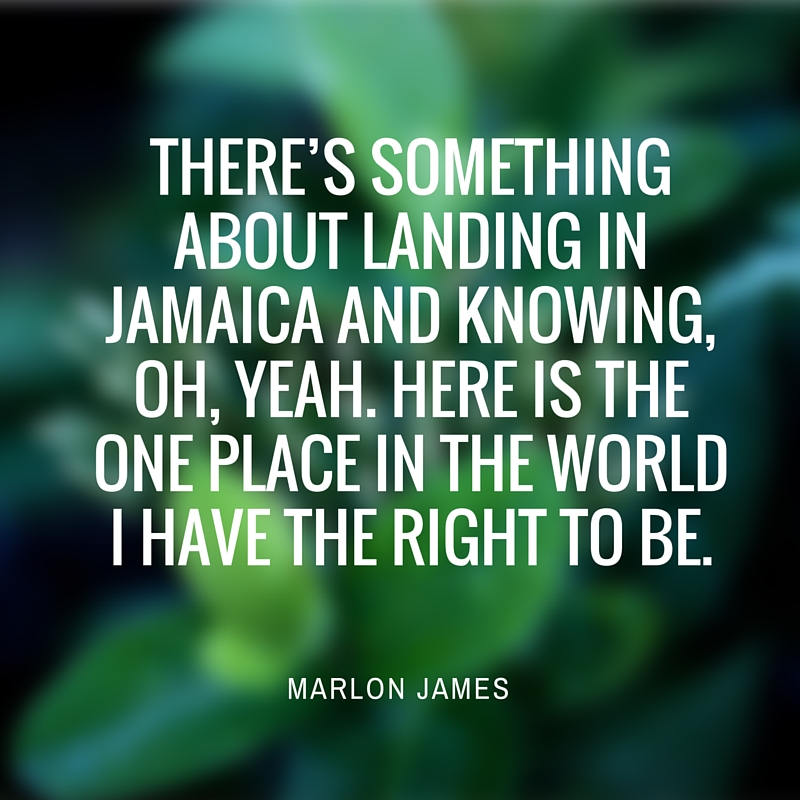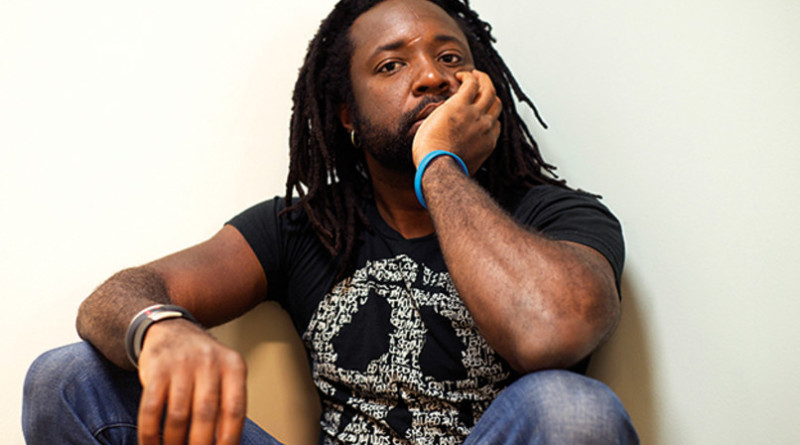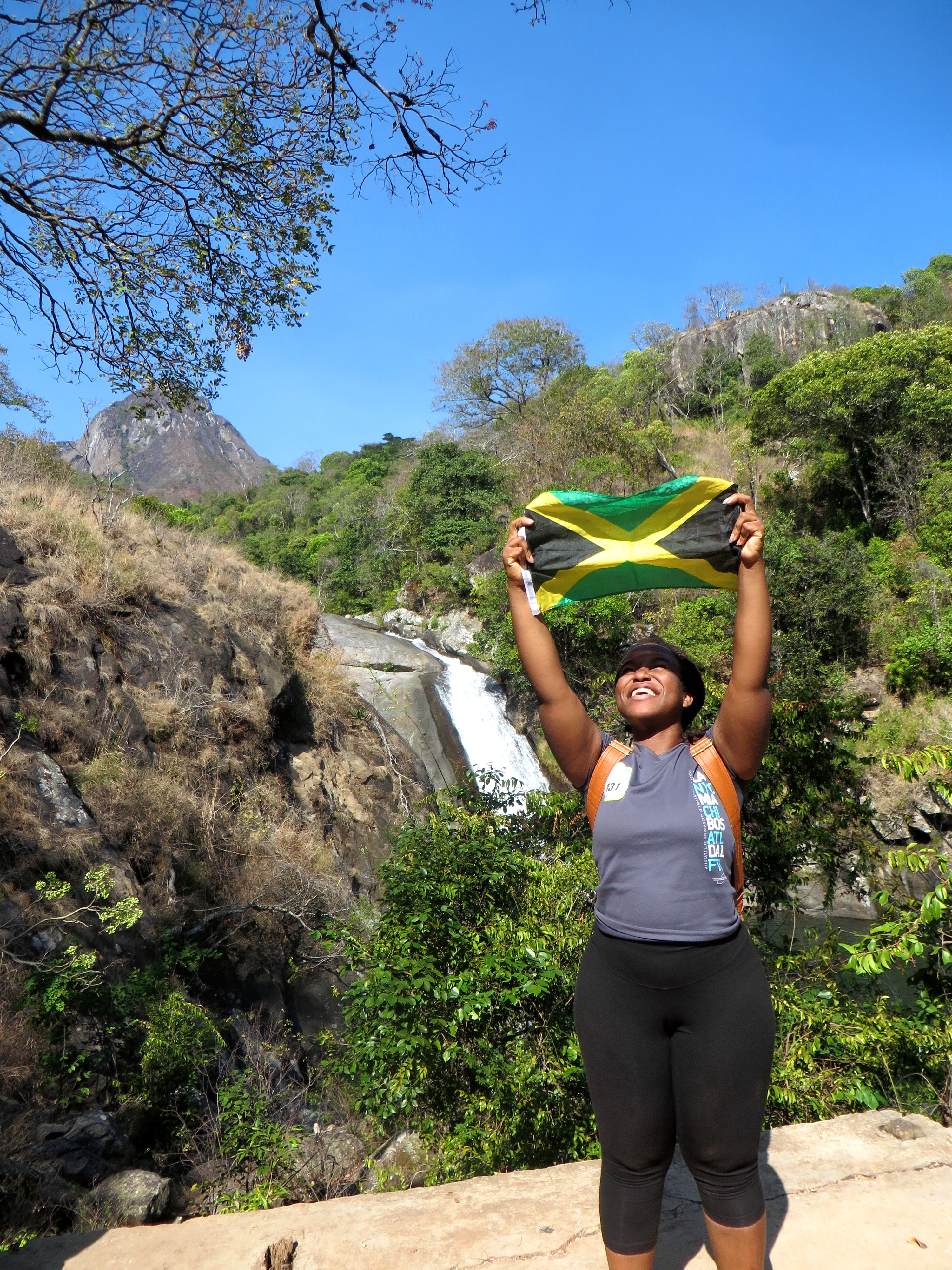Celebrating Marlon James, But Only In Part?
My heart leaped when I checked social media this morning* and noticed that Marlon James had been awarded Man Booker Prize. James is the first Jamaican to be awarded this honour – Britain’s highest literary award. Like many of my Jamaican friends, I will jump at any opportunity to celebrate a win for Jamaica. And isn’t that how we all interpreted it? Dis likkle island bwoy who went to farrin and made it as a writer? It’s nothing short of a dream. And when one wins, we all win – so we usually feel.
But the thing that was glaringly absent to me were comments on James’ sexuality. Granted, I was moving through my Facebook and Twitter timelines rather quickly. But I wasn’t the only one, as @DMarcAnthony pointed out that James’ sexuality was not mentioned in any of the reports from the major Jamaican outlets either. And his sexuality shouldn’t be an issue, should it? Except, I think James would argue that Jamaica made it one.
On March 10, 2015, The New York Times published what can only be described as a heartwrenching piece by James. It was subtitled, I knew I had to leave my home country — whether in a coffin or on a plane. In it, he poignantly details bitter experiences, from childhood to adulthood, that lead to his emigration:
“I took a copy of Penthouse to school to score cool points, but the other boys called me “batty boy” anyway — every day, five days a week. To save my older, cooler brother, I pretended we weren’t related.”
“One day after school, instead of going home, I walked for miles, all the way down to Kingston Harbor. I stopped right at the edge of the dock, thinking next time I would just keep walking.”
“At 28 years old, seven years out of college, I was so convinced that my voice outed me as a fag that I had stopped speaking to people I didn’t know.”
“The entrance to my cubicle was blocked by a boss with curious eyebrows who asked why all my magazines showed men on the covers, what GQ meant, where was Playboy? Every man in the office had a woman on the side, whether he was married or not, and even monogamous men were considered gay. Memories of childhood returned as nightmares: I was a kid again, frightened by school, praying to God every night, please let me wake up in another body. One that walked and talked right. That did not play house with a boy in the neighborhood that time when he was 8 and I was 9 and ruin him and myself.”
In a subsequent Island Outpost interview he said:
There is a “don’t ask, don’t tell” culture where everybody will know that their neighbor is gay, and the two aunties sleep in the same bed at night, and it’s sort of their business. I’m not sure if this is progress, but at least it’s something. I think there is still a sense that you can never sleep with both eyes closed. You’re still on guard, you’re still not completely safe. But then again, there are places in the States where you’re not at ease either. Hell, at least Jamaica isn’t Uganda. No one so far has tried to enforce legislation, no one is trying to be Russia.
There’s this thing we do as Jamaicans, where one of us wins and we all claim the victory. Sometimes the way we take ownership of the Marleys and Usains and Tessannes you’d think we have something to do with their success. So here we are at this juncture where I want to do that thing we do where we revel in yet another Jamaican victory. Except, this time I am thinking of how the same collective spirit that allows us to claim national awesomeness (aka Jamination) every time one of us wins, should also extend to national blame when one of us is bullied, to the point of near-suicide. I find it unacceptable that, culturally speaking, we can take such pride in his success, but not take pride in him as an individual. It is noteworthy to me that James never mentioned any physical attacks of the ilk which I believe foreign media often exaggerates in its painting of rampant Jamaican homophobia, but he does speak to an ongoing verbal and psychological attack which made it impossible for him to find peace in his home. And that is just as disturbing.
James’ story is one of perseverance in the face of self-doubt and rejection. Prior to publishing this book, he had destroyed the manuscript, and actually had to retrieve it from his email outbox, having also deleted it from his friend’s email accounts. His first novel, John Crow’s Devil, was rejected 78 times before being published. Now his most recent book is being turned into an HBO series.
I wonder how many more Marlon Jameses are hiding their talents while cowering in fear of homophobia? Click To Tweet Are we ok with losing out on the Stacey-Ann Chins and Diana Kings in our midst?

Today I say congratulations to Marlon James. But also thank you for continuing to big up Jamaica everywhere yu go. I don’t know if I would have had the courage or the pureness of heart to do the same. Thank you for giving us something to be proud of, and reminding me of something of which we need to be ashamed.
[ A Brief History of Seven Killings: A Novel is James’ rendering of the details surrounding the 1976 attempted murder of Bob Marley. If you haven’t gotten a copy of yet, you should. I’m reading it now.]
* I wrote this post on Wednesday October 14. In a later article, The Jamaica Observer briefly referenced “anti-gay society” as a part of the reason James left Jamaica.











Well articulated Truly,
Every time I read your piece, I learn a big lesson
Raise and Shine Donna
Excellent post…
Jamaicans are afraid of freedom; it would require too much from them.
I had not heard of him either. You raise some excellent points on what I view as an all too common human character flaw the willingness to celebrate and draw near to our people’s success but not willing to draw near to or defend them against injustice.
I’m not familiar with Marlon James but after reading this it makes me want to know more about him.
This was such an interesting and inspiring story. I think of how I freak out if I forget to save a blog post and have to start over!
Wow, what an amazing and inspiring story! I had never heard of him so thanks for sharing and starting a much needed conversation.
As a Jamaican, I know there are a lot of people who are afraid to come out back home… because Jamaican’s more than any other’s are so homophobic.
That’s an awesome award! I’ve seen this on author on the news. I think he now resides in my city.
Such a thought provoking piece. Such a shame that places like Jamaica frown upon homosexuality and even more sad that this aspect of the author’s life is glaringly missing. Would have been a great opportunity to spread awareness and acceptance.
Congrats to Marlon for persevering through all the challenges of living his life. What an amazing accomplishment to be awarded a prestige award for his writing. Thanks for sharing! Great post!
Siobhan
http://www.befreeproject.com
Great post. A win for one always should be a win for all no matter the culture or preference.
I know what it feels to be home someplace you can relate and just be who you are. Great Article!
Very nice. Congrats to him.
Wow interesting story.I look forward to the HBO series to learn more!
Thanks for sharing this! I had never heard of Marlon James but his story sounds like an inspiring one. I am always interested in hearing about homophobia in the African American and Caribbean communities and it is something that needs to be discussed more. Congratulations to him on receiving such an honor.
LiveLifeWell,
Allison Jones